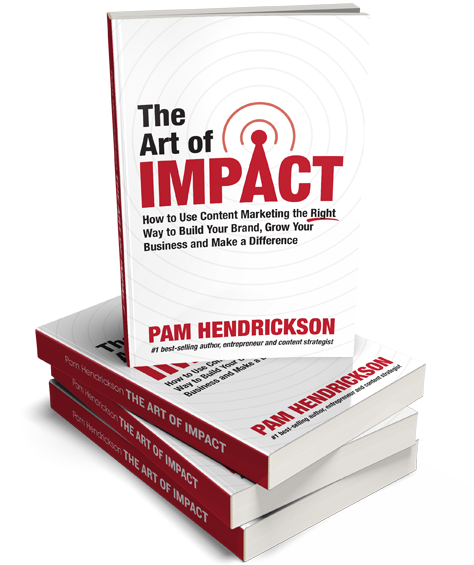It has often been said that we are not human beings having a spiritual experience of life, but rather we are spiritual beings having a human experience.
In the end, our businesses (and the content, product and value we create in the process) are a reflection of who we are and the lessons we’ve learned along the way.
It’s this journey – more than anything we can learn in a book, product or seminar – that causes us to become more as people and ultimately, what allow us to make deeper and richer contributions to our clients, our communities, and the world.
Here are some of my most important lessons learned to date. My guess is they will likely pale in comparison to some of what I have yet to learn.
As renowned Coach John Wooden said, “It’s what you learn after you ‘know everything’ that really counts.”
I hope they help you in your entrepreneurial journey as well.
1. People judge a book by its cover
It’s a funny thing about a society whereby you can deliver 8 hours of video, 238 pages of content and 12 hours of audio on one flash drive and yet it isn’t perceived to be as valuable as a package with half the amount of content delivered in 4 separate DVDs, 4 CDs and a 100-page printed manual.
The reason for this is that often people make their purchasing and satisfaction decisions based on their perception of the value they’re getting vs. the true value of what they receive.
Perceived value is defined as: A customer’s opinion of a product’s value to him or her. It may have little or nothing to do with the product’s market price, and depends on the product’s ability to satisfy his or her needs or requirements.
A great example of this is in the housing market. We all know examples of homes that were given a cosmetic facelift and suddenly sold for more money.
TNS did an independent research study of the impact of adding a new door (created by Therma-Tru) to the perceived value of a home. The study found that a home with an enhanced Therma-Tru entryway added to its perceived value by as much as five times the cost of the door itself.

When you package your products – online, at a live event or in physical form – make sure that you’re maximizing both the actual value and the perceived value. Your customers will thank you for it.
2. Yesterday is ancient history
The Internet is like professional sports. You’re only as good as your last game, season, or in this case your last product or post.
As much as it seems like it’d be great to do one big thing and be done with it all, we likely realize that this wouldn’t make us happy long-term. Sure it’d be nice for a while, but once the high of it all wore off, we’d be looking for what’s next. It’s like astronauts who’ve been to the moon. What do you do from there?
Consistency is the name of the game. Brands are created because companies have given their customers a predictable great result each and every time they interact. When your customers have certainty through time that you put out great products, you deliver on your promises and you’re committed to do right by them, they will be loyal to you for the long haul.
One bad experience, even if it comes after nine good ones, will set your relationship with customers back indefinitely.
Unfortunately this is how it works.
It took over a decade and several thousand workers to build the World Trade Center. It took a few minutes and less than a dozen men to destroy it.
This is an intense example, but a powerful one.
Be consistent. Don’t tear things down by not thinking things through or by not executing impeccably every single time.
This doesn’t mean you need to try to be perfect. It’s about making a commitment to constantly improve your business, create and deliver outstanding products and services and take care of your customers at the highest level.
3. You’re a guest in their home
I’ve had the privilege of having some unbelievable mentors in my life. One of my most valued mentors and colleagues is John Zahody (audio producer for most of Tony Robbins audio programs as well as for many other recognizable names in the field).
Early on, he taught me what I believe is the most important principle of creating quality products and services: When someone purchases your product or service, you instantly become a guest in his or her home.
As a house guest, would you openly curse in front of someone else’s child? Would you leave on your muddy shoes when stepping on their carpet? Would you be difficult to reach or communicate with? Or would you be kind and courteous? Would you be honest and up front? Would you bring a hostess gift as a thank you for inviting you in?
Here are some tips for being a great house guest that apply here:
- Be on time. Don’t deliver your product or service after the timeline you promised. Answer any customer inquiries in a timely fashion (within less than one business day).
- Offer a house gift. In this business, this means giving a couple of unannounced bonuses that have high perceived value for your customer. Anticipate their needs and offer additional value to them for no additional cost.
- Contribute. While you can’t do the dishes for your customers, you can make sure you are offering something of value that makes their lives better in some tangible way. Make sure your product or service delivers on your core promise.
- Be cool. If something unexpected happens, warmly communicate what’s going on and how you’re going to solve it as soon as you can.
- Use your manners. A sincere “please” or “thank you” goes a long way in making people feel appreciated. Sincerely acknowledge your customers and be gracious in your communications to them.
- Respect their house. Their house, their rules. The problem is you don’t know what they are and who might be listening when they consume your product. Therefore, err on the conservative side. If you wouldn’t say something in front of your 5-year old daughter, then it’s best to leave it out of your product or service.
If you approach your relationship from this standpoint, you will be the kind of guest people think of fondly and ask back again and again.
4. Yelling at your cat
You’re either a cat person or you’re not (I happen to be one). Either way, chances are you’ve tried to yell at one as some point in your life. And, I’m willing to bet that in response the cat looked up at you indifferently, gave you the consummate “you’re annoying me” look and indignantly went back to doing what it was doing before you made such a fuss.
Business is the same way. Trying to change someone or something that isn’t changeable is not only completely futile, it will sap your much needed energy away from the more important tasks at hand (the ones you can control).
You can’t change your market, the economy, the FTC guidelines or the nature of the person answering your phones or programming your web pages. You can change how you’re communicating to customers, what you’re offering and who you hire and keep as business associates.
Remember the Serenity Prayer: Grant me the serenity to accept the things I cannot change, the courage to change the things I can and the wisdom to know the difference.
Be clear about what you want, what’s important to you in the process and put the majority of your focus into the things you can influence and change.
5. “You’re just a man.”
The story goes like this: Marcus Aurelius ruled Rome from 161 AD until his death in 180 AD. During that time, he hired a servant to walk behind him as he received the accolades of his citizenry. Every time Marcus received a compliment, however, the servant was instructed to whisper in his ear, “You’re just a man. You’re just a man.”
He once wrote, “Wrestle to be the man philosophy wished to make you. Stop talking about what the good person should be and just be that person.”
Just as we must be vigilant to notice what’s working and build on our successes (instead of constantly beating ourselves up for what we’re not doing), we need to be careful it doesn’t go the other way.
When you do start having success in this business, it’s good to remember that at the end of the day, we’re all just people trying to make a difference.
Experiencing success in your field isn’t a license to grow a huge ego; just as having some things not go your way isn’t an incarceration of you as a failed business owner.
Keep your perspective. Foster your inner confidence, but balance it with humility.
Most of all, keep your sense of humor in tact on this journey!
In the words of Henry David Thoreau, “Go confidently in the direction of your dreams. Live the life you’ve imagined.”
I’ll see you there.




Hi, I’m a project manager and this is really a good article for me. Every mistake should be lessoned learned. Thank you for this. Here’s an article http://www.proggio.com/blog/generating-lessons-from-project-failure/ that I found and may be helpful to people in business.